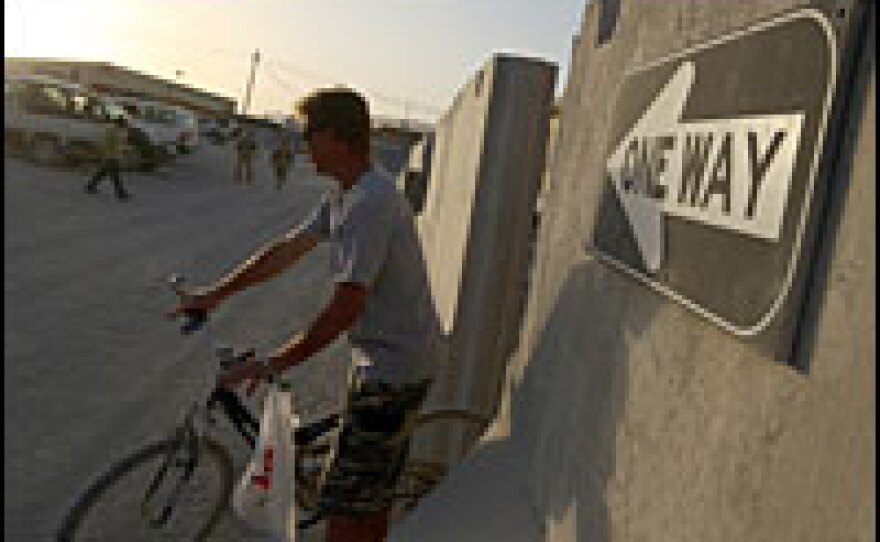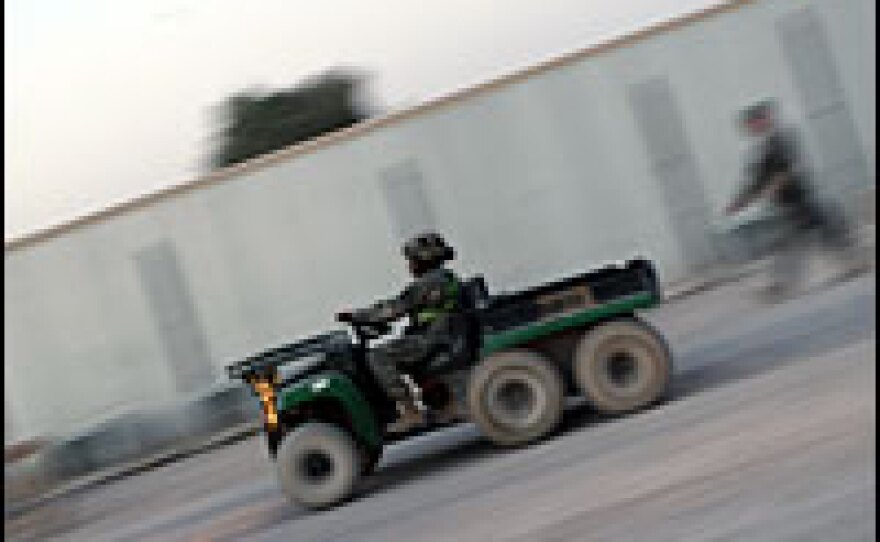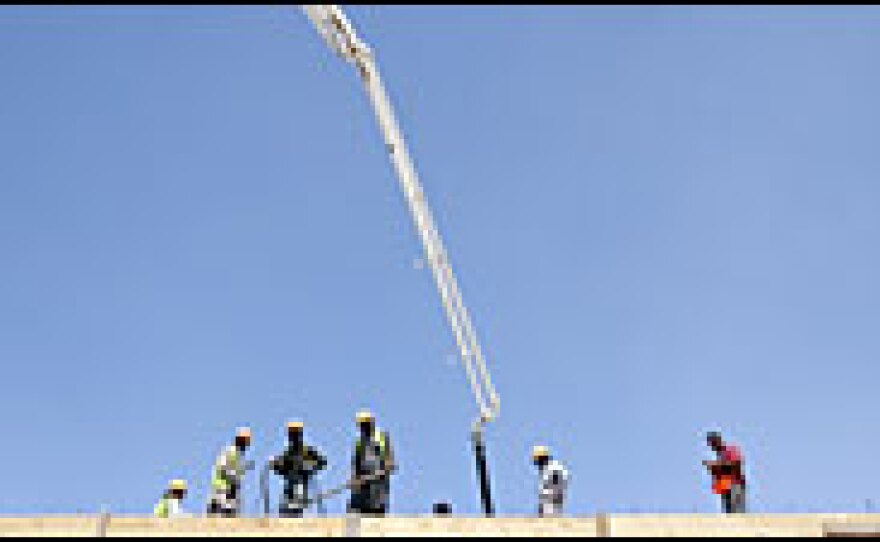


Iraq's government is taking a hard line with Washington over how long and under what conditions U.S. troops can remain in the country, but in Afghanistan, officials seem to have accepted the indefinite presence of more than 70,000 foreign troops on their soil.
It has been more than six years since the remnants the Taliban regime fought a "last stand" against U.S. and Afghan forces at the airport in Kandahar. Since then, Kandahar Air Field has grown into a vital NATO air base.
The base in southern Afghanistan is now a walled, multicultural military city that houses some 13,000 troops from 17 different countries — the kind of place where you can eat at a Dutch chain restaurant alongside soldiers from the Royal Netherlands Army.
Hockey In The Desert
Not far from U.S. troops who play basketball to the beat of blaring rap is the surreal sight of Canadian troops in heavy pads and helmets playing street hockey in an outdoor rink in the middle of the Afghan desert, the clatter of hockey sticks mingling with gunfire from a shooting range at the edge of the base.
"It is a key air field for the whole of Afghanistan, but particularly for the south," Air Commodore Bob Judson, its British commander, said in a phone interview.
The NATO military presence in Afghanistan has grown from 5,000 soldiers in 2003 to more than 53,000 today, and Judson said about 170 helicopters, fighter jets and transport planes are now based in Kandahar.
Building Infrastructure
Judson said he has a budget of some $780 million to further develop the infrastructure at the base.
"Sooner or later, we will ultimately hand this air field back to the Afghans, to southern Afghanistan in particular," Judson said. "Conservatively, we're saying 2020. That is, of course, a guess. We have no real feel for how long it will be. If we're going to see out the mission that we're here to do, then we would expect it is a good number of years away."
About an hour's flight north of Kandahar is Bagram Air Base, which is run by the U.S. military. Like Kandahar, Bagram is also expanding, military officials there say.
"They are expanding certain pockets," said Lt. Brian Lamar. "We've bought the land from the locals in different places."
Opposition To Expansion
The Western military presence in Afghanistan has unsettled some regional powers, such as Russia.
"Is it all to fight a number of Taliban — 10,000, 12,000 Taliban?" says Zamir Kabulov, Russia's ambassador to Kabul. "Maybe this infrastructure, military infrastructure, [is] not only for internal purposes but for regional also."
Russia views this as a potential threat "because Afghanistan's geographical location is a very strategic one," Kabulov said. "It's very close to three main world basins of hydrocarbons: Persian Gulf, Caspian Sea, Central Asia."
Mark Laity, the spokesman for the NATO alliance in Afghanistan, disagrees.
"Well, not for the first time the Russian ambassador is talking total rubbish," Laity said. "I tell you what would pose a threat to Russian interests, which is a destabilized Afghanistan, either in a civil war or once again ruled by the Taliban."
Though there are some critics of the NATO presence in the Afghan parliament, the only real opposition comes from the Taliban itself.
Air raid sirens go off frequently at Kandahar Air Base, warning of incoming Taliban rockets. And outside the walls, it is much more dangerous.
Afghan military officials say Taliban attacks have jumped 40 percent this summer, with daily roadside bombings and suicide bomb attacks.
A Limit To Hospitality
Gen. Mohammed Azimi, of the Afghan Defense Ministry, said U.S. and NATO troops are welcome to stay in Afghanistan, on one condition:
"Our hospitality depends on their behavior here," Azimi said. "If foreign soldiers break down peoples' doors at night and search their houses, then the people will line up to go and join the Taliban."
Afghans have already demonstrated that there are limits to their hospitality. Two years ago, residents of Kabul rioted after a deadly car accident involving a U.S. military truck. More recently, Afghans blocked roads in the eastern part of the country to protest coalition air strikes, which they say killed Afghan civilians.
Copyright 2022 NPR. To see more, visit https://www.npr.org. 9(MDAzMjM2NDYzMDEyMzc1Njk5NjAxNzY3OQ001))







